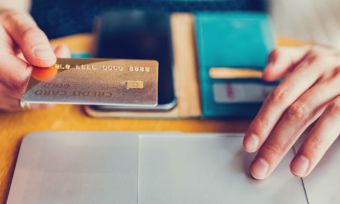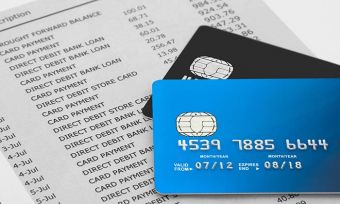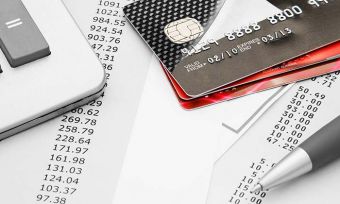These days, as we’re stuck at home, many of us are doing more of our non-essential shopping online. But the more you spend online or purchase goods over the phone, the more you risk your credit card details falling into the wrong hands. So is giving your credit card numbers out to people over the phone or punching them into a website safe? Here are the answers to some common questions:
Is it safe to save my credit card details on shopping websites?
Many online shopping sites give you the option to store your credit card details online so you don’t have to fill them in each time you make a purchase. The common term for this is “card on file”. There are a number of protocols outlined by Visa and Mastercard that the merchant must follow if you give them permission to store your details. This includes not being allowed to store your Card Verification Value (CVV), which is the three- or four-digit number usually found on the back of the card. This policy also applies to other common sites and services such as Google, iTunes, and Uber, etc. You will need to manually enter the CVV if you want to make a purchase.
Even though retailers have to adhere to certain protocols, it doesn’t mean your account details are completely safe. You may still be vulnerable if there’s a data breach and the website is hacked. Because of this, it could be a good idea to err on the side of caution and avoid saving your credit card details. There are alternatives such as PayPal, Visa Checkout and Mastercard MasterPass that let you make online payments without having to enter your credit card details each time you want to make a purchase.
I’m buying something over the phone – is it safe to give out my credit card details?
Let’s get the obvious point out of the way. You should never give your credit card details to someone over the phone unless you know the person or business and trust them and perhaps, most importantly, you called them directly.
If you do want to make a purchase over the phone, one way to try to protect yourself is to ask the merchant to complete the transaction over the phone directly, and to punch in the numbers as you read them out and not write them down, which could lead to them falling into the wrong hands. And if you are reading out your credit card details, avoid doing it in a public space where someone might overhear and possibly jot down the details. You should also ask for a receipt number for the transaction.
Compare Credit Cards for free with Canstar
My child bought something using my credit card without my permission. Where do I stand?
If this occurs the chances are your child has used your credit card details to make an in-app purchase or in an online game, which can happen if you don’t have the controls set up properly. It’s unlikely your credit card provider will refund the charges (unless you’re claiming fraud) but you may have better luck contacting the app store or gaming provider to request a refund.
Your best bet is to contact the app store you bought it from immediately. Some purchases from Apple’s App Store, iTunes Store, and Apple Books, for example, are eligible for a refund.
Google Play has a few options, too. They give refunds for some Google Play purchases, depending on the refund policies. You can also contact the developer directly. If a purchase was accidentally made by a friend or family member using your account, request a refund on the Google Play website.
It’s always a good idea to take steps that can prevent your child making purchases without your permission. You might turn off in-app purchases completely, or require a passcode for every in-app purchase. Apple’s Screen Time feature can be used for that very purpose and Google Play lets you turn on authentication settings.
If your child’s purchase means you find yourself in financial difficulty, contact your credit card issuer as soon as possible as they may be able to assist you. They may review your interest rate, offer to extend the term or reduce the payments. It’s worth a call.
Consider having a conversation about online spending with your child, and put boundaries in place to prevent it from happening. Also keep your credit cards in a safe place and away from sticky little fingers!
What should I do if I spot a transaction on my account that I don’t recognise?
There might be a simple explanation. For example, if there is an additional cardholder ask them if they made the purchase. Or if the business’ name on your statement isn’t familiar, just double check it, as some firms trade under different names and you might have made the purchase after all. A Google search can help here, or some institutions have a feature on their internet banking that lets you look up this information.
If you’ve done your research and still think the transaction is fraudulent, then contact your financial institution as soon as possible. In many cases you could be reimbursed for any unauthorised transactions.
If your bank suspects fraudulent activity, they will contact you and can temporarily freeze your internet banking to prevent further fraudulent transactions. Depending on what has happened, your bank may be able to reimburse you for any money taken from your account. Even then, they will never ask for your log-in details or password.
Keep in mind you are less likely to get your money back if you:
- Didn’t keep your PIN or password secret
- Unreasonably delayed telling your bank that your card was lost or stolen
- Unreasonably delayed telling your bank that someone else may know your PIN or password
- Accidentally left your card in an ATM
- Acted fraudulently
Enjoy reading this article?
Sign up to receive more news like this straight to your inbox.
By subscribing you agree to the Canstar Privacy Policy






Share this article